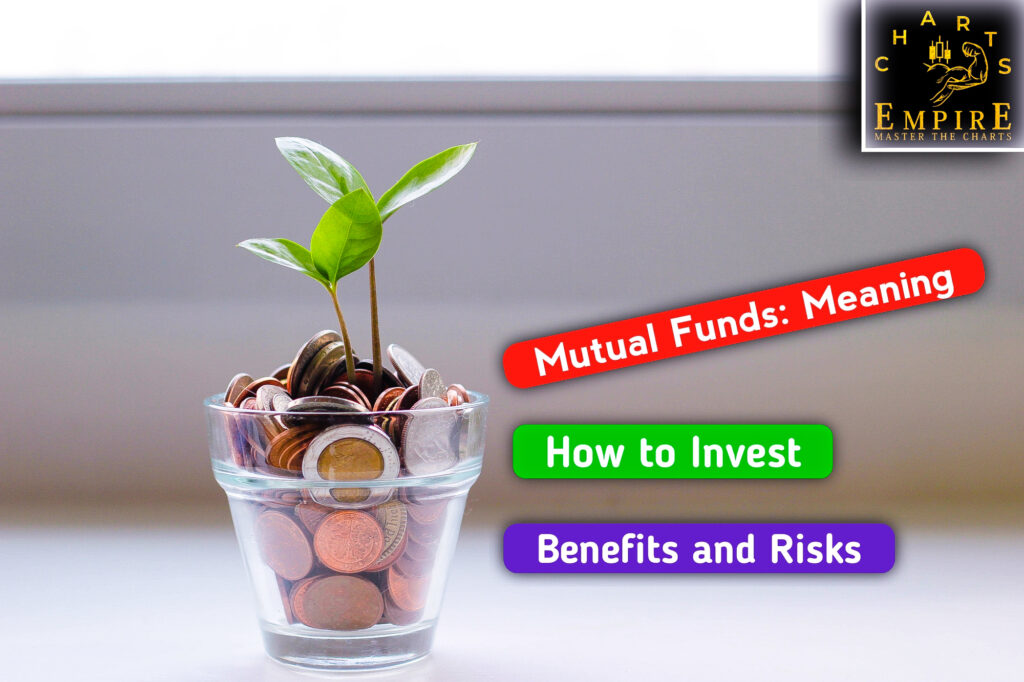Difference Between Forex and CFDs: All You Need to Know…
Forex and CFDs are two popular markets that people invest in. Forex is all about buying and selling currencies, while CFDs let you bet on the price movements of financial assets without actually owning them.
These two markets have some similarities but also some important differences. Understanding these differences can help you decide which one is right for you.
In this blog post, we’ll highlight:
- What Forex Trading is,
- What CFD Trading is all about,
- How the Forex and CFD markets work,
- Similarities between the two,
- Key differences between the two, and
- Forex vs. CFDs: Which one to trade?
What is Forex?
Forex is short for “foreign exchange,” which refers to the global market where people buy and sell currencies from all around the world. It involves buying one currency and selling another at the same time, with the aim of making a profit from the difference in value between the two currencies.
Forex Trading Explained to a 12-Year Old
The Forex Market is all about buying and selling currencies. For example, a trader can buy “Euros” with “US Dollars”. If the exchange rate between the two currencies increases, the trader can sell the Euros and make a profit.
On the other hand, if the exchange rate decreases, the trader would incur a loss. Forex traders can also speculate on the exchange rate movements of other currencies, such as the Japanese Yen, British Pound, Swiss Franc and many others.
How the Forex Market Works
The Forex market is a global market where people buy and sell currencies from all around the world. It’s a decentralized market, meaning that there is no physical location where trading takes place. Instead, trading is done electronically, 24 hours a day, five days a week.
Forex trading is usually done through a broker or a market maker who facilitates transactions between buyers and sellers. Traders can access the market through a trading platform provided by their broker or a third-party provider.
The exchange rate between two currencies is determined by supply and demand. When there is more demand for a currency than supply, its value goes up, and when there is more supply than demand, its value goes down.
Economic and political factors, such as interest rates, inflation, and geopolitical events, can also influence exchange rates. Forex traders aim to profit from the difference in value between two currencies.
As We Explained Above: A trader might buy Euros with US dollars. If the exchange rate between the two currencies increases, the trader can sell the Euros and make a profit. On the other hand, if the exchange rate decreases, the trader would incur a loss.
What are CFDs?
CFD stands for “Contract for Difference.” A CFD is a financial instrument that allows traders to speculate on the price movements of an underlying asset, such as stocks, commodities, or indices, without actually owning the asset.
CFD Trading Explained to a 12-Year Old
CFD is like making a bet with someone about whether the price of something (like a stock or currency) will go up or down. If you’re right, you make money, and if you’re wrong, you lose money.
It’s like playing a game where you bet with your friend on the price of a toy. Let’s say you think the toy’s price will go up, and your friend thinks it will go down. If the toy’s price goes up, you win. If it goes down, you lose your bet and your friends win. This is similar to how CFDs work.
How the CFD Market Works
When a trader buys a CFD, they are entering into a contract with a broker or a market maker to pay or receive the difference in price between the opening and closing price of the contract. CFDs can be used to go long (buy) or short (sell) on an underlying asset.
CFD traders can also speculate on the price movements of other assets, such as commodities, indices, cryptocurrencies and many others.
Don’t Miss: 60 Commonly Used Trading Terms Serious Traders & Investors Should Know
Similarities Between CFD Trading vs Forex Trading
1. Leverage: Both CFD and forex trading allow traders to use leverage, which means they can control a larger position with a smaller amount of capital.
2. Short Selling: Both CFD and forex trading allow traders to go short or sell an asset if they think its price will go down.
3. Volatility: Both CFD and forex markets can be volatile, and their prices can move quickly in response to news and events.
4. Trading Platforms: Both CFD and forex trading can be done through online trading platforms that provide access to charts, news, analysis, and trading tools.
5. Risk Management: Both CFD and forex trading require risk management strategies, such as setting stop loss orders, to limit potential losses.
Key Differences Between Forex and CFDs
1. Assets Traded
Forex trading involves trading currencies, while CFD trading can involve a wide range of assets, including stocks, indices, commodities, and cryptocurrencies. This means that CFD traders have more options when it comes to trading different markets.
2. Market Hours
Forex markets are open 24 hours a day, five days a week, while CFD markets usually follow the trading hours of the underlying asset. This means that CFD traders may have to adjust their trading schedule to match the trading hours of the asset they are trading.
3. Fees and Commissions
Forex trading usually involves paying a spread, which is the difference between the buying and selling price of a currency pair. CFD trading may involve additional fees, such as overnight financing charges and commission fees.
4. Margin Requirements
Forex trading usually requires lower margin requirements compared to CFD trading. This means that forex traders can open larger positions with less capital compared to CFD traders.
5. Regulatory Environment
Forex trading is regulated in many countries, which can provide some level of protection for traders. CFD trading is also regulated, but the regulations can vary depending on the country and the broker.
Trading Strategies: Forex trading is often more suitable for traders who focus on macroeconomic events and long-term trends, while CFD trading can be more suitable for traders who focus on short-term price movements and technical analysis.
6. Liquidity
Forex markets are generally more liquid than CFD markets, especially for major currency pairs. This means that traders can usually execute trades more quickly and at more favourable prices in the forex market.
7. Trading Platforms
Forex trading usually requires specialized trading platforms that are designed for forex traders. CFD trading can be done through a variety of platforms, including forex platforms.
Forex vs. CFDs: Which One to Trade?
Forex Trading is Better If:
- The trader’s main goal is to focus on currency pairs, as forex trading provides more opportunities to specialize in this market.
- The trader prefers a more stable market with lower volatility compared to CFD trading.
- The trader wants to have lower trading costs, as forex trading generally has lower spreads and commission fees compared to CFD trading.
- The trader is interested in trading during the 24-hour forex market, allowing for more flexibility in terms of when to trade.
CFD Trading is Better If:
- The trader is interested in trading a wide range of assets, including stocks, commodities, and cryptocurrencies, as CFD trading provides more opportunities to trade different markets.
- The trader is comfortable with higher levels of risk due to the potentially higher volatility of certain assets in CFD trading.
- The trader has expertise in a particular market, such as stocks or commodities, and is looking to leverage that knowledge in their trading.
- The trader is looking for a more complex trading experience with additional features like leverage and short-selling, which are commonly available in CFD trading platforms.
Recommended for Next Read
Copy Trading and Trading Signals: Pros and Cons, Which should I use?








